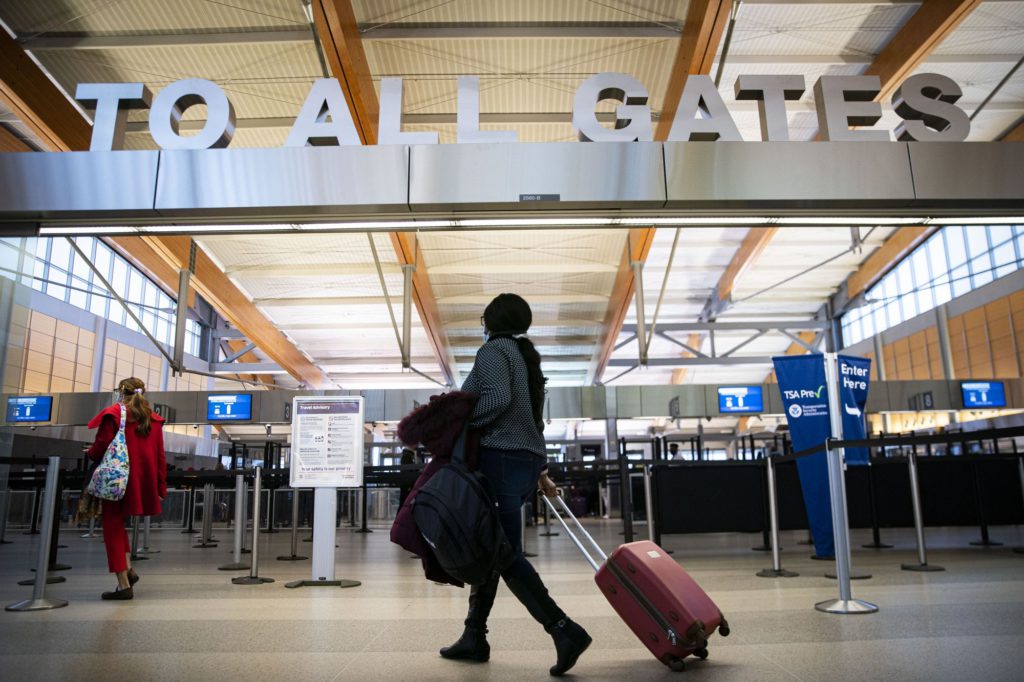(Bloomberg) — Booking Holdings Inc. reported revenue in the first quarter that was better than analysts’ estimates, benefiting from pent-up demand for leisure travel.
The U.S.’s biggest online travel company reported revenue rose 136% to $2.7 billion in the three months ended March 31, while analysts projected $2.54 billion. Gross bookings, which represent all travel services excluding cancellations, were $27.3 billion, the highest quarterly amount ever for the company. That beat the average analyst estimate of $25.39 billion, according to data compiled by Bloomberg. The shares jumped about 8% in extended trading.
“Despite an uncertain macroeconomic environment, we have seen continued strengthening of global travel trends so far in the second quarter of 2022, and we are preparing for a busy summer travel season ahead,” Chief Executive Officer Glenn Fogel said in a statement.
After more than two years of limited travel options due to Covid-19 restrictions, travel executives are expecting a surge in bookings this summer as consumers splurge on vacations. Airbnb Inc., which reported strong results on Tuesday, said it sees “substantial demand” for travel heading into the busiest time of the year. And Chief Executive Officer Brian Chesky said Airbnb is seeing “higher than historical demand” for the fourth quarter, “which indicates that consumer confidence to travel remains strong beyond the summer months.”
But the market punished Expedia Group Inc., which earlier this week reported an 80% jump in revenue in the first quarter, signaling investors’ rising concern about inflation and the risk for recession. Travel companies from hotels to airlines have been saying consumers are willing to pay the rising prices so far, but there appears to be a limit. Hilton Worldwide Holdings Inc. also gave a profit forecast that fell short of analysts’ expectations.
Still, there are positive signs that people are itching to take a trip. For example, United Airlines Holdings Inc. is boosting capacity for transatlantic flights and Southwest Airlines Co. said it expects to be profitable for the remaining three quarters of the year, even with oil prices well over $100 a barrel.
Booking also owns flight aggregator Kayak and travel booking site Priceline, as well as an alternative accommodations platform. The Norwalk, Connecticut-based company has a strong global presence, with close to 90% of 2020 revenue coming from its international segments, which made it more exposed to the war in Ukraine than its rivals. But positive signs for cross-border travel in Europe are emerging, with Covid-19 restrictions easing and greater demand on low-cost carriers EasyJet Plc and Ryanair Holdings Plc, according to Cowen Inc. analyst Kevin Kopelman.
While Airbnb has attracted guests seeking to rent full homes in more rural areas where they can work remotely, Booking, which is more dependent on hotels, flights and car rentals, is anxiously awaiting tourists to return to large cities and international vacation hotspots.
Investors were initially rattled by the war, but Booking disclosed in a March securities filing that despite a drop in room nights driven by the Eastern European region, Western Europe levels remained above 2019 levels. The slowdown in room nights is likely improving, Kopelman wrote in a note last week. Despite Americans’ feelings about the war, Fogel said in March that he didn’t think it would change their summer travel plans.
Booking reported a net loss of $700 million. Adjusted earnings per share were $3.90, far better than expected than analysts’ estimates of 71 cents. Despite the executives’ optimism over summer demand, all three online travel companies have seen their shares suffer this year. Booking is down about 12% while Airbnb is down about 6% and Expedia tumbled 17%.
More stories like this are available on bloomberg.com
©2022 Bloomberg L.P.











